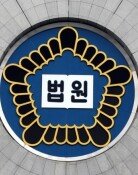FTA is Drifting Hard
We are extremely disappointed with the subject of medicine, Korea has way more to go.
We definitely notified Korea that the full opening of the beef market, including beef with bones, is important in order to successfully conclude negotiations and to get ratification in both countries.
U.S. chief negotiator Wendy Cutler scattered strong statements in a press briefing on December 4 (local time), as the fifth round of talks on FTA between Korea and U.S.A. was initiated.
Koreas chief negotiator Kim Jong-hoon also replied fiercely, We are disappointed with the utterance of disappointment.
The U.S. pushed Korea strongly on beef, medicine, and automobiles, but Korea didnt give ground, thus there was no progress in the first day of the negotiation.
The Force of the U.S.-
Both countries had focused on items which were relatively easy to handle up to the fourth round. However, the real negotiations started with the fifth round as major issues which had been postponed until now were discussed. Cutlers strong words are considered as her attempt to attain ascendancy over the negotiation.
She also mentioned opening the entire beef market. It is neither an agenda of FTA nor one which can be concluded in working-level negotiation, and the U.S. knows the fact of course. So it seems to be a strategy to attain predominance in other subjects, considering that the U.S. repeatedly refers to the beef issue.
There would be more elaborate examinations on several important subjects, in accordance with the change in the U.S. Congress, said Cutler. It is considered that the negotiation would be stricter as the protectionist Democratic Partys dominance in the U.S. Congress will affect the negotiation.
The Democratic Party congressmen from Michigan, the Mecca of U.S. automobile industry, sent a mail to U.S. Trade Representative Susan Schwab and warned, We will oppose the FTA if Korea doesnt abolish a trade barrier which hinders the advance of American automobiles.
Koreas Answer: Not Bad-
It is inappropriate to say that the circumstance of negotiation is worse, said Korean chief negotiator Kim Jong-hoon in the briefing even though he fiercely argued with US negotiators regarding Cutlers mention of disappointment. He added, Since it is the last official negotiation of this year, we agreed that it is important to make advancements in the main subjects.
It is known that both countries achieved significant agreement on the mechanism which approves qualifications of experts such as doctors, nurses, and architectures in both countries. If it is finally approved, Korean doctors can practice in the U.S. and vice versa.
The types of industry have not yet been determined, said Kim Young-mo, the chief of the service department of the Ministry of Finance and Economy. About Americas demand that Korea set the specific timing for opening up its law and accounting market, he noted that the market would be open before the FTA comes into effect.
Requires High-level Talks-
The actions of the senior staff are picking up the pace, since there is a limitation to arrange key subjects in the working-level negotiations.
Chief Agricultural Trade Representative Richard Crowder visited Seoul last week and met some officials, said Cutler.
U.S. Trade Representative Susan Schwab and Minister of Trade Kim Hyun-jong met in Washington following their meeting last month in Hanoi, Vietnam, and discussed FTA issues. Also, a separate conference regarding fibers will be held on December 8 between the assistant vice-ministers.
Some Korean negotiators insist that there should also be high-level talks on agriculture and financial service as well.
smhong@donga.com







